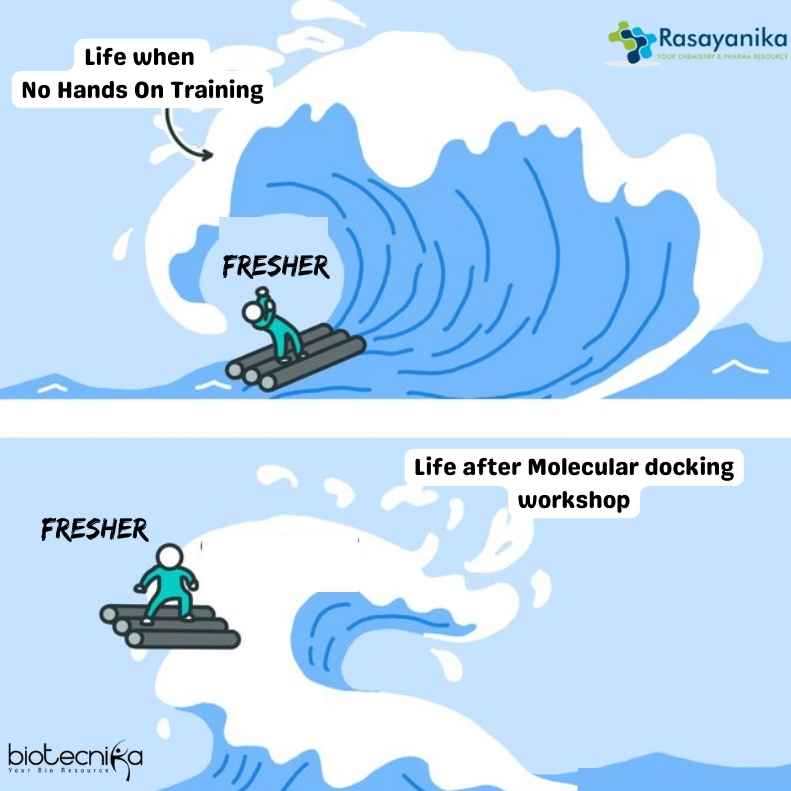After completing a Master of Science (MSc) in Chemistry, many students aspire to further their academic and career prospects by pursuing competitive exams. These exams open doors to a wide range of opportunities in research, teaching, and industry. In this article, we will explore a list of competitive exams that MSc Chemistry graduates can consider, offering insights into each exam’s purpose, eligibility criteria, and potential career prospects.
List of Competitive Exams:
1: CSIR UGC NET (Council of Scientific and Industrial Research National Eligibility Test)
The CSIR-NET (Council of Scientific and Industrial Research National Eligibility Test) is a prestigious examination in India specifically designed for MSc Chemistry graduates and those in related fields. It serves as a critical assessment of a candidate’s aptitude for research in the field of science and provides them with significant career prospects in academia and research. Here’s an elaboration on the provided content:
Eligibility:
- MSc in Chemistry or Related Field: To be eligible for CSIR-NET, candidates must have completed their Master’s degree in Chemistry or a closely related field. This demonstrates a strong academic foundation and subject-specific knowledge.
- Minimum Marks: Candidates should have secured a minimum of 55% marks in their MSc program. However, there is a relaxation for candidates belonging to certain categories like SC/ST/OBC, who need only 50% marks. This inclusion of relaxation ensures that a wider range of candidates can participate in the examination, promoting inclusivity.
- Age Limit for JRF: For those aspiring for the Junior Research Fellowship (JRF), there is an age limit of 28 years. However, this age limit can be relaxed for candidates belonging to SC/ST/OBC categories, persons with disabilities (PWD), and women candidates. The relaxation in the age limit is aimed at providing equal opportunities and encouraging underrepresented groups to pursue research careers.
Career Prospects:
- Junior Research Fellowship (JRF): One of the primary outcomes of succeeding in the CSIR-NET exam is the award of the Junior Research Fellowship. This is a prestigious recognition that provides financial support to the candidate to pursue research in their chosen field. JRF recipients often work on cutting-edge research projects in top research institutions and universities, contributing to the advancement of science and technology.
- Assistant Professor Positions: CSIR-NET also serves as eligibility for lectureship positions in universities and colleges across India. Candidates who clear the exam can apply for Assistant Professor positions, and upon selection, they become part of the academic faculty. Assistant Professors play a crucial role in imparting knowledge to students, conducting research, and mentoring the next generation of scientists.
2: GATE (Graduate Aptitude Test in Engineering)
List of Competitive Exams!Indeed, the Graduate Aptitude Test in Engineering (GATE) is not limited to engineering disciplines; it also includes Chemistry as one of the subjects. Qualifying in GATE Chemistry can significantly broaden the career prospects for candidates in the field of science. Here’s an elaboration on the provided content:
Eligibility:
MSc in Chemistry or Related Field: To be eligible to appear for GATE Chemistry, candidates are required to have completed their Master’s degree in Chemistry or a closely related field. This ensures that candidates have a strong academic background in the subject.
Career Prospects:
- Admission to M.Tech or M.E. Programs: Qualifying in GATE Chemistry opens doors to postgraduate programs such as Master of Technology (M.Tech) or Master of Engineering (M.E.) in various institutes and universities in India. Many prestigious institutions consider GATE scores for admission to their postgraduate programs in Chemistry or related fields. This allows candidates to pursue advanced studies and specialize in their areas of interest, which can be advantageous for research or industry roles.
- Opportunities in PSUs (Public Sector Undertakings): Public Sector Undertakings (PSUs) are government-owned companies or organizations that often recruit engineers and scientists for various technical roles. GATE scores are used as a benchmark for selection in several PSUs. This means that candidates with a strong GATE score in Chemistry may have the opportunity to secure well-paying and stable government jobs in fields such as energy, oil and gas, chemical manufacturing, and more.
- Research and Development (R&D) Positions: Many PSUs have their own R&D divisions where they conduct research in areas related to Chemistry. Qualified candidates may find themselves working on innovative projects, contributing to scientific advancements, and developing new technologies.
- Quality Control and Assurance: PSUs often require professionals to ensure the quality and safety of their products. Chemistry graduates can find roles in quality control and assurance, where they are responsible for maintaining product standards and compliance with regulations.
- Environmental and Sustainability Roles: With an increasing focus on environmental sustainability, PSUs are also interested in professionals who can address environmental concerns and develop eco-friendly practices. Chemistry graduates can play a vital role in these areas.
Exam 3: JAM (Joint Admission Test for M.Sc.)
Msc Chemistry Competitive Exams
The Joint Admission Test for M.Sc. (JAM) is a highly regarded examination in India, primarily conducted for admission to M.Sc. programs in prestigious institutes such as the Indian Institutes of Technology (IITs) and the Indian Institute of Science (IISc). Qualifying in JAM Chemistry opens up significant career prospects in academia and research. Here’s an elaboration on the provided content:
Eligibility:
- Bachelor’s Degree with Chemistry as a Major Subject: To be eligible for JAM Chemistry, candidates should have completed a Bachelor’s degree with Chemistry as their major subject. This ensures that candidates have a foundational understanding of Chemistry.
Career Prospects:
- Admission to M.Sc. and Integrated Ph.D. Programs: Qualifying in JAM Chemistry is the gateway to pursuing M.Sc. programs in reputed institutions such as IITs and IISc. Additionally, some institutes also offer integrated Ph.D. programs for candidates with exceptional academic potential. These programs provide a strong academic foundation and research exposure.
- Research Positions in Academia: After completing an M.Sc. through JAM, candidates have the opportunity to pursue a research career in academia. They can apply for Ph.D. programs in Chemistry or related fields, where they delve deep into specialized areas of research. During their Ph.D. journey, candidates work on research projects, publish scientific papers, and contribute to the advancement of knowledge in Chemistry.
- Research Positions in Industry: JAM-qualified candidates are also sought after by the industry, especially in sectors related to pharmaceuticals, chemicals, and materials science. They can work in research and development (R&D) roles, where they are involved in product development, process optimization, and innovation.
- Teaching and Academic Careers: Some JAM qualifiers choose to enter the field of education. They can pursue careers as lecturers, assistant professors, and professors in colleges and universities. Teaching positions allow them to share their knowledge and mentor the next generation of scientists.
- Government and Private Sector Jobs: Apart from academia and research, JAM-qualified individuals may find opportunities in government research organizations, scientific agencies, and private companies that require experts in Chemistry. These positions can be diverse and may include roles in quality control, analytical chemistry, and more.
- Consulting and Entrepreneurship: With their strong analytical and problem-solving skills, JAM Chemistry qualifiers can also venture into consulting or start their own entrepreneurial ventures in areas related to Chemistry, such as environmental consulting or chemical product development.
Exam 4: UPSC Civil Services Examination
Msc Chemistry Competitive Exams
The UPSC Civil Services Examination is indeed one of the most challenging and competitive examinations in India. It opens up a wide range of career prospects in the government administrative services. Here’s an elaboration on the provided content:
Eligibility:
- Bachelor’s Degree in Any Discipline: To be eligible for the UPSC Civil Services Examination, candidates must hold a Bachelor’s degree in any discipline. This includes candidates with an MSc in Chemistry, making it accessible to a broad range of graduates.
Career Prospects:
- Indian Administrative Service (IAS): Qualifying the UPSC Civil Services Exam can lead to the prestigious Indian Administrative Service (IAS). IAS officers are responsible for the administration of government policies and programs at the district, state, and central levels. They play a vital role in decision-making, policy formulation, and implementation.
- Indian Police Service (IPS): Successful candidates can also join the Indian Police Service (IPS), which is responsible for maintaining law and order, preventing and investigating crimes, and ensuring the safety and security of citizens. IPS officers serve as senior police officers at various levels, from sub-inspectors to director generals.
- Other Administrative Positions: Apart from IAS and IPS, the UPSC Civil Services Exam opens up opportunities for various other administrative positions, including:
- Indian Forest Service (IFS): IFS officers are responsible for the conservation and management of India’s forests and wildlife resources. They work towards sustainable forestry practices and biodiversity conservation.
- Indian Revenue Service (IRS): IRS officers are primarily involved in the collection and management of taxes in the country. They oversee tax administration, revenue generation, and tax policy formulation.
- Indian Foreign Service (IFS): IFS officers represent India in foreign countries and handle diplomatic relations, international affairs, and trade matters. They work to promote India’s interests and maintain foreign relations.
- Indian Audit and Accounts Service (IAAS): IAAS officers are responsible for auditing government accounts and ensuring financial accountability. They play a crucial role in maintaining financial integrity and transparency in government operations.
- Indian Postal Service (IPoS), Indian Railway Traffic Service (IRTS), and More: The UPSC exam also allows candidates to join other central government services, each with its own specific responsibilities and functions.
The career prospects after qualifying for the UPSC Civil Services Exam are not limited to administrative roles alone. Successful candidates can also move into policymaking, leadership, and decision-making positions in various government departments and ministries. Their roles are diverse, and they have the opportunity to make a significant impact on governance, public policy, and the welfare of the nation.
Exam 5:SET (State Eligibility Test)
List of Competitive Exams!
The State Eligibility Test (SET) are important examinations conducted in India that open up career prospects in academia and research. Here’s an elaboration on the provided content:
Eligibility:
- MSc in Chemistry with Minimum Marks: To be eligible for SET, candidates should have completed their Master’s degree (MSc) in Chemistry with a minimum of 55% marks. However, there is a relaxation for candidates belonging to reserved categories (SC/ST/OBC), who need only 50% marks. This ensures inclusivity and provides opportunities for a diverse range of candidates.
Career Prospects:
- Assistant Professor Positions in Universities and Colleges: Qualifying in SET is a prerequisite for many universities and colleges in India when hiring faculty members for teaching positions. Candidates who clear these exams can apply for Assistant Professor positions. As Assistant Professors, they have the responsibility of teaching undergraduate and postgraduate students, conducting research, and contributing to the academic development of their respective institutions.
- Teaching and Mentoring: Assistant Professors play a vital role in imparting knowledge to students and nurturing their academic growth. They design and deliver lectures, supervise research projects, and guide students in their academic pursuits.
- Contribution to Curriculum Development: Faculty members often participate in curriculum development, designing courses that are relevant to current industry trends and research advancements. They contribute to shaping the educational landscape.
Exam 6: BARC (Bhabha Atomic Research Centre)
The BARC (Bhabha Atomic Research Centre) exam is an important and highly competitive examination in India for admission to the Training Schools of BARC, which is one of the premier nuclear research institutions in the country. BARC conducts various training programs and scientific research activities related to nuclear science and technology. Here’s a detailed description of the BARC exam:
Eligibility Criteria:
The eligibility criteria for the BARC exam may vary depending on the specific training program, but generally include the following:
- Educational Qualifications: Candidates should have completed a Bachelor’s degree in science or engineering from a recognized university or institution.
- Minimum Marks: Typically, candidates are required to have a minimum of 60% aggregate marks in their qualifying degree, although specific requirements may vary.
- Age Limit: The age limit for different training programs may vary, but candidates are usually required to be less than 26 years of age.
Training Programs Offered by BARC:
BARC offers a range of training programs for selected candidates through the BARC OCES (Orientation Course for Engineering Graduates and Science Postgraduates) and DGFS (DAE Graduate Fellowship Scheme) programs. These programs include:
- OCES (Orientation Course for Engineering Graduates and Science Postgraduates): This program is designed for candidates with a background in engineering or science. Selected candidates are trained in various disciplines related to nuclear science, engineering, and technology. After successful completion of the OCES program, candidates are absorbed as Scientific Officers in BARC.
- DGFS (DAE Graduate Fellowship Scheme): DGFS is an innovative program that offers fellowships to students pursuing M.Tech or M.Chem.Engg. in specific disciplines at select institutes. After successful completion of their postgraduate studies, DGFS fellows are absorbed as Scientific Officers in BARC.
Selection Process:
The selection process for the BARC exam is highly competitive and typically involves the following stages:
- Online Examination: Candidates first appear for an online examination, which consists of multiple-choice questions (MCQs) related to their respective disciplines. The exam assesses candidates’ technical knowledge and aptitude.
- Interview: Shortlisted candidates from the online examination are called for an interview. The interview panel evaluates candidates based on their subject knowledge, problem-solving skills, and communication abilities.
- GATE Score: For OCES and DGFS programs, candidates with a valid GATE (Graduate Aptitude Test in Engineering) score are given additional weightage during the selection process.
Training and Placement:
Selected candidates undergo rigorous training at the BARC Training School in various disciplines related to nuclear science and technology. The training period typically lasts for a year. After completing the training, candidates are placed in various divisions of BARC to work on research and development projects.
Career Prospects:
After successful completion of the training, candidates are absorbed as Scientific Officers in BARC. They have the opportunity to work on cutting-edge research projects, contribute to nuclear technology advancements, and have a rewarding career in the field of nuclear science.
Exam 7: DU PhD Entrance Exam
Msc Chemistry Exams – MSc Chemistry graduates are eligible to apply for the PhD admission exam at the University of Delhi (DU) if they meet the university’s eligibility criteria. The University of Delhi is a prestigious institution in India that offers various research opportunities, including PhD programs in Chemistry.
Here are the typical eligibility criteria for pursuing a PhD in Chemistry at the University of Delhi:
- Educational Qualifications: You should have completed your MSc in Chemistry or a related field with a good academic record. Usually, a minimum of 55% aggregate marks (or an equivalent grade) is required in your postgraduate degree. However, please note that specific eligibility criteria may vary between departments and faculties, so it’s essential to check the official notification and departmental website for the most up-to-date information.
- Entrance Exam: The University of Delhi often conducts an entrance examination for admission to its PhD programs. You need to qualify in this entrance exam, which typically assesses your subject knowledge, research aptitude, and related skills. The details of the entrance exam, including syllabus and application procedures, will be provided in the official notification.
- Interview or Presentation: After clearing the entrance exam, you may also be required to appear for an interview or make a presentation to the department’s selection committee. This stage is crucial as it assesses your research potential and alignment with the department’s research areas.
- Reservation and Relaxations: The University of Delhi follows the reservation policy of the Government of India for SC/ST/OBC/EWS and other eligible categories. Relaxations in eligibility criteria may be provided to candidates belonging to these categories.
- NET/JRF/SRF: If you have qualified for the National Eligibility Test (NET) or have a Junior Research Fellowship (JRF) or Senior Research Fellowship (SRF), you may be exempted from the entrance exam, depending on the department’s rules.
- Research Proposal: Some departments may require you to submit a research proposal as part of the application process. This proposal should outline your research interests and potential research area.
It’s essential to regularly check the University of Delhi’s official website and the specific department’s website for the most current information regarding PhD admissions, eligibility criteria, application deadlines, and other relevant details. Meeting the eligibility criteria and performing well in the entrance exam and interviews will enhance your chances of securing a PhD admission in Chemistry at the University of Delhi.
Exam 7: Foreign University Entrance Exams – Msc Chemistry Competitive Exams
Studying abroad is a fantastic opportunity, especially for those aspiring to pursue higher education in chemistry-related programs. Entrance exams like the GRE (Graduate Record Examination) and English language proficiency tests such as TOEFL (Test of English as a Foreign Language) or IELTS (International English Language Testing System) are often prerequisites for admission to international universities. Here’s an elaboration on the provided content:
Eligibility:
- Varies by University and Country: Eligibility criteria can vary significantly from one university to another and from one country to another. It’s essential for aspiring international students to carefully review the specific admission requirements of the universities and programs they are interested in. These requirements may include minimum GPA, standardized test scores (GRE), language proficiency test scores (TOEFL/IELTS), letters of recommendation, and more.
Career Prospects: Msc Chemistry Competitive Exams
- Pursue a Master’s or Ph.D. Abroad: Qualifying for admission to international universities through standardized tests like the GRE and language proficiency tests such as TOEFL/IELTS opens the door to pursuing a Master’s or Ph.D. in chemistry-related programs abroad. Here are some advantages of studying abroad in this context:
- Diverse Academic Environment: International universities often have a diverse student body, faculty, and research opportunities. This exposure to different perspectives and approaches can enhance the overall learning experience.
- Access to Cutting-Edge Research: Many renowned universities abroad are at the forefront of scientific research. Students have access to state-of-the-art laboratories and opportunities to engage in groundbreaking research projects.
- Global Networking: Studying abroad allows students to build a global network of peers, professors, and researchers. This network can be valuable for future collaborations and career opportunities.
- Cultural and Personal Growth: Living and studying in a foreign country can lead to personal growth and the development of valuable skills such as adaptability, intercultural communication, and independence.
- Opportunities for International Research Collaborations: Pursuing a Master’s or Ph.D. abroad can also lead to opportunities for international research collaborations. These collaborations may include working with researchers from different countries on joint research projects, attending international conferences, and publishing research papers in collaboration with experts in the field. Such experiences can significantly enhance one’s research skills and contribute to advancements in the field of chemistry.
- Access to Global Resources: International collaborations provide access to a broader range of resources, including funding, equipment, and expertise. This can facilitate more comprehensive and impactful research.
- Addressing Global Challenges: Collaborating with researchers from different parts of the world allows for a more holistic approach to addressing global challenges in areas such as environmental science, healthcare, and materials science.
- Career Advancement: Engaging in international research collaborations can also enhance one’s career prospects. It demonstrates an ability to work in diverse teams and tackle complex problems, which is highly valued in academia and industry.
Pursuing competitive exams after MSc Chemistry can significantly enhance your career prospects. Whether you aspire to become a researcher, lecturer, or administrator, there are numerous options available. It’s essential to choose the exam that aligns with your career goals and interests, and thorough preparation is the key to success in these competitive exams. Keep in mind that each exam may have specific eligibility criteria and application deadlines, so plan your path accordingly to achieve your academic and professional aspirations.
Msc Chemistry Competitive Exams List



















































Im study in msc chemistry